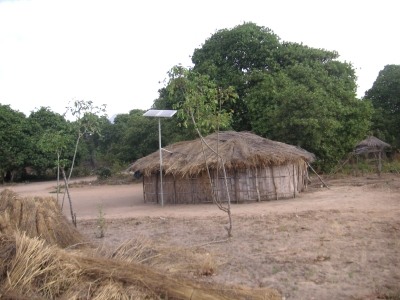'Growth in the dark - a generation without power'
As a nation slowly goes back to work in a more subdued economic environment than that of a year or two ago, for many involved in businesses, construction and mining, as well as newcomers surveying the potential of Mozambique’s investment landscape, foremost among their concerns will, once again be, securing adequate supplies of electric power for their future needs.
Mozambicans, especially those in the centre and north of the country know this story only too well. Around this time last year severe weather cut off most of the province of Nampula for almost a month with devastating impacts on both the regional and national economies.
Basic businesses such as cement and brick making plants, mines and other extractive industry facilities are still powered by generators burning expensive diesel that has been trucked across the country; Now, this year, company operators as well as ordinary citizens in the centre of Mozambique have just learned that they can expect power cuts imminently, as essential and long delayed upgrading work to two of the region’s power stations is carried out. The power stations at the Chicamba and Mavuzi dams on the Revue river, which date from the colonial era have long been operating with equipment which is now obsolete.
Their scheduled shutdowns to implement upgrading will cause extensive supply reductions to inhabitants of Sofala and Manica Provinces, including citizens in Beira and Chimoio cities. Rehabilitation of the Chicamba and Mavuzi power stations began in January 2014, and completion is scheduled for October 2016.
Solar a ray of hope on a gloomy horizon
Mozambique’s EDM has made great strides in extending its national grid to a majority of districts across all provinces of the country in recent years. However, again, this may have come at the cost of getting more of the power to the centres of population and business that are willing to pay and who can fund the extra supply at market rates.
Instead of painstakingly seeking to extend traditional power supply lines bring the grid to every rural outpost and hamlet, another approach, again from elsewhere in Africa has been to bypass the grid entirely and install off-grid individual solar units that meet a customized need.
South Africa is the continental leader in the installation and connection of individual solar units for business and residential power generation; whether for on or off-grid, finance is being made available through government subsidies, home equity loans and banks such as Nedbank, which has a dedicated solar finance division. Meanwhile, M-Kopa, a Kenyan firm, is expanding across East Africa selling its solar-powered battery systems, which contain a torch and a mobile-phone charger. Finance is being made available: Customers are effectively given loans to buy them; repayments are made through mobile money.
In sum there are options for countries like Mozambique with urgent power supply needs; Generating power and sending it along a grid may transform life in rural areas for the better, but factories, mines and mills need a reliable, large-scale power supply. If countries like Mozambique are to develop, power plants will be needed and the right incentives and guarantees for the investors must be offered otherwise capital will not be forthcoming.
Getting customers to start paying their electricity bills is just the beginning. Giving the private sector a chance to satisfy a growing demand overhang should not be rocket science, but business will not invest until the regulatory and financial environment offers a fair chance at making back their investment with a worthwhile return on capital.

